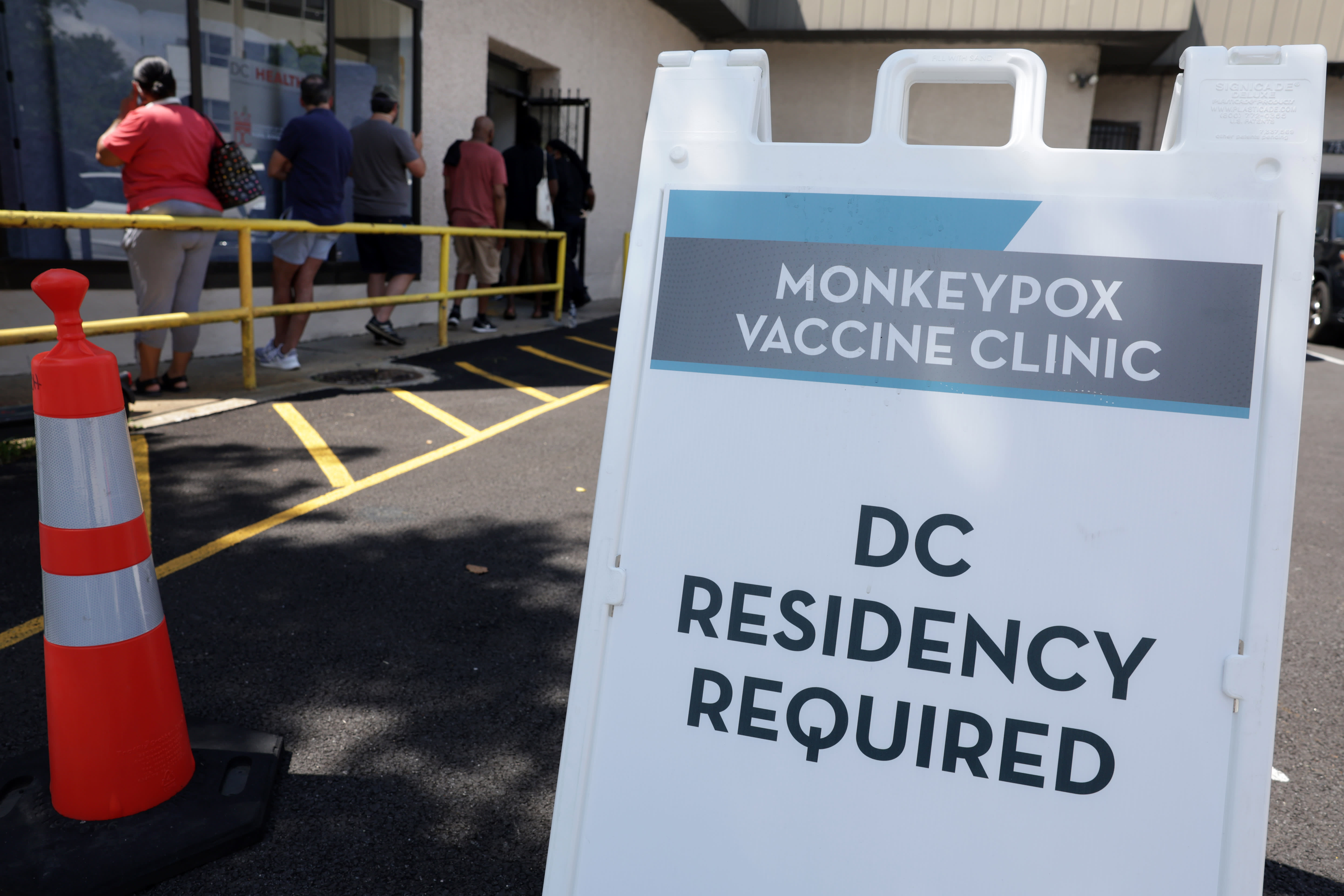Santa Clara County has officially begun using a controversial new monkeypox vaccination protocol that will stretch the current vaccine supply by giving each person a much smaller dose.
This follows an FDA announcement green lighting a plan that effectively turns each regular dose of monkeypox vaccine into five vaccinations.
The goal is to reach as many people as possible. The concern however, is that it’s a technique that's never been publically tried with this specific disease.
“This had been studied previously for the monkeypox vaccine and was found to be just as effective,” said Dr. Jennifer Tong.
Get a weekly recap of the latest San Francisco Bay Area housing news. Sign up for NBC Bay Area’s Housing Deconstructed newsletter.
She is associate chief medical officer for Santa Clara Valley Medical Center and said the new plan will help address the gap between supply and demand.
It also changes how the vaccine must be delivered.
“Intradermally instead of subcutaneously, it means giving the dose between the layers of the skin rather than being underneath the skin,” said Tong.
Some critics have said the intradermal shots are more complicated to administer and easier to get wrong.
But doctor Tong said she's not concerned.
“This is a standard technique taught to those who administer vaccines, most vaccines in our country are given by nurses, and this is something that nurses learn during their training, it is most often used for TB skin tests, tuberculosis skin test,” she said.
And it makes sense particularly when there is vaccine scarcity.
“And the benefit being that only one fifth of the dose is needed for the intradermal injection so it allows a single vial of a vaccine, which was previously enough for one patient, for that vial to be used for five patients and multiply our limited inventory five fold,” said Tong.
County-operated sites started the new protocol Tuesday, giving over 100 of the new injections.
Because of limited inventory, the county continues to require appointments for vaccinations.
San Francisco is clarifying its approach to case investigations and contact tracing after reports that it had largely given up after some patients express concerns about providing the names of their sexual partners who may have been exposed
They now say their hybrid efforts to track the virus are paying off.
“We have been quite successful in reaching contacts when those names are provided to us so what we have seen here is in sf is strong collaboration with the community, very proactive about seeking vaccine as we have been able to make them available and in notifying their contacts and partners,” said Stephanie Cohen, medical director at San Francisco City Clinic.



